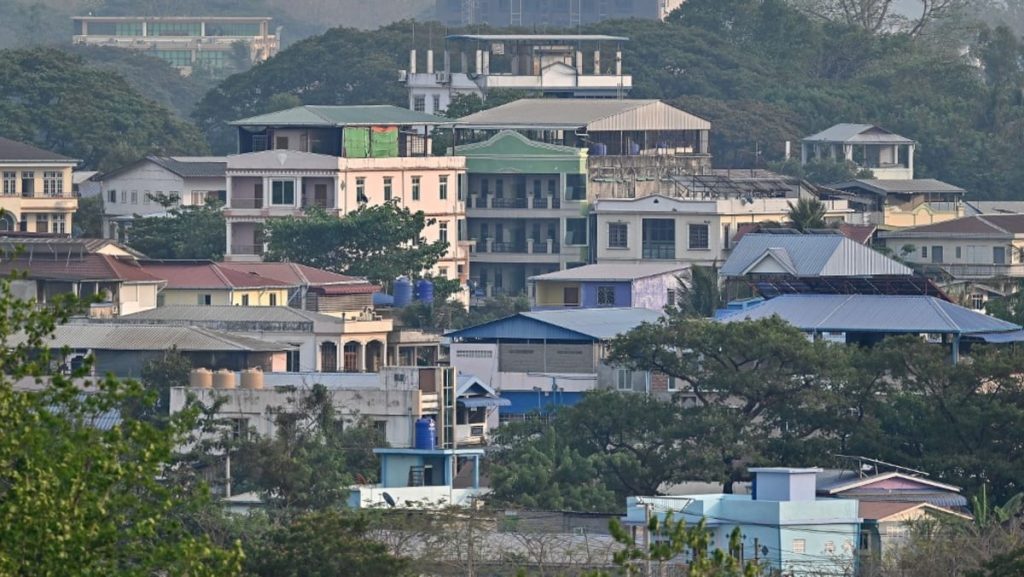Myanmar’s military junta has embarked on a significant campaign against online scam operations proliferating within its borders, deporting over 55,000 foreign nationals suspected of involvement since October 2023. This unprecedented crackdown, highlighted in a state-run newspaper editorial, sheds light on the scale of these illicit activities, which include online scams and gambling, and the junta’s efforts to address them. The vast majority of those deported, over 53,000, were sent back to China, underscoring the transnational nature of these criminal networks and the significant impact on neighboring countries. The editorial represents a rare public acknowledgement of the issue by the junta and a call for regional cooperation to combat the burgeoning criminal enterprise.
The junta’s operation targets individuals operating within scam compounds that have sprung up in Myanmar’s border regions. These compounds often house foreign nationals who have been trafficked and coerced into working for these criminal syndicates. They are forced to participate in online scams, primarily targeting their compatriots in other countries, generating billions of dollars in illicit profits. The scale of the deportations, with over 1,000 individuals sent to Vietnam and over 600 to Thailand, in addition to those from approximately 25 other countries, illustrates the widespread nature of this human trafficking and forced labor issue. The junta’s statement emphasizes that those deported are not ordinary foreign civilians or Myanmar nationals but “fugitive offenders” who entered the country illegally.
The junta’s public acknowledgement of this issue and the scale of the deportations represent a departure from its previous approach. The editorial in the Global New Light of Myanmar provides unprecedented detail about the extent of the problem and the government’s response. This transparency suggests a potential shift in strategy, possibly driven by international pressure or a desire to improve its image in the face of widespread criticism for its human rights record. The editorial also signifies an appeal to neighboring countries for collaborative action against these transnational criminal networks.
The plea for regional cooperation highlights the complexities of tackling these cross-border criminal activities. The junta’s call for neighboring countries to “participate in combating online scams and online gambling” underscores the need for a coordinated international response. Effective collaboration requires information sharing, joint law enforcement operations, and addressing the root causes of the problem, including human trafficking and the vulnerability of individuals to exploitation. It remains to be seen how neighboring countries will respond to this call for cooperation and what concrete measures will be taken to address the issue collectively.
The focus on “fugitive offenders” entering illegally from neighboring countries suggests that the junta is attempting to deflect responsibility for the rise of these scam compounds within Myanmar’s territory. While the influx of foreign criminals undoubtedly contributes to the problem, the editorial avoids addressing the underlying conditions within Myanmar that facilitate these operations, such as corruption, weak law enforcement, and porous borders. The junta’s narrative also overlooks the potential complicity of local actors in facilitating the establishment and operation of these compounds.
The junta’s actions, while seemingly positive in addressing the immediate problem of online scams, raise several critical questions. The sheer number of deportations raises concerns about due process and the potential for misidentification or arbitrary detention. The lack of transparency surrounding the deportation process, including the criteria used to identify individuals involved in scams and the conditions under which they are held and deported, necessitates further scrutiny. Moreover, the long-term effectiveness of deportations alone remains to be seen, as it fails to address the underlying factors that drive the proliferation of these criminal enterprises in the first place. A comprehensive solution requires addressing the root causes, including poverty, lack of opportunity, corruption, and weak governance, within Myanmar and in the countries from which the trafficked individuals originate. Furthermore, international cooperation is essential to disrupt the flow of funds and dismantle the transnational criminal networks that profit from these illicit activities.

